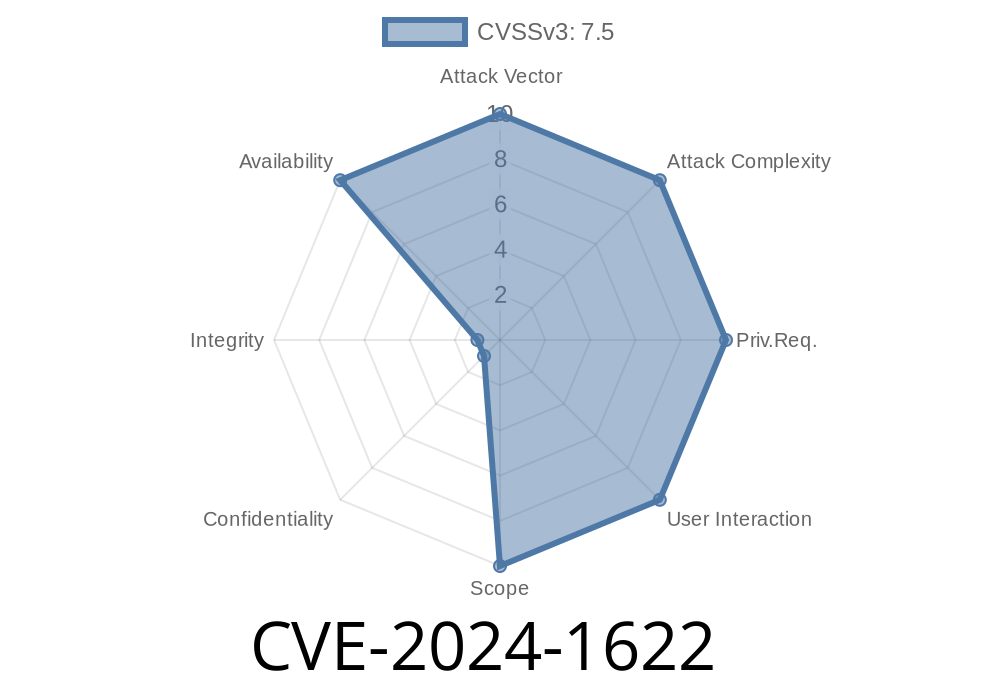In early 2024, a vulnerability surfaced in Routinator—one of the most popular RPKI (Resource Public Key Infrastructure) relying party software systems. Named CVE-2024-1622, this bug exposed the system to a fatal termination based on a simple error check. The root cause? If a client started an RTR (RPKI to Router) session and immediately reset the connection, Routinator would crash. In the world of network reliability, that’s a big deal.
In this long read, I’ll break down the vulnerability in simple terms, show you the code path with snippets, and share how an attacker can easily exploit this bug. Links to official resources and, most importantly, steps to mitigate the problem are also included.
What is Routinator?
Routinator is a free and open-source tool from NLnet Labs. It collects, validates, and provides RPKI data to routers using the RTR protocol, helping secure Internet routing.
If a vulnerability like CVE-2024-1622 stops Routinator, it disrupts the routing security many ISPs and cloud operators depend on.
What Is CVE-2024-1622? In Simple Language
CVE-2024-1622 is a software bug in Routinator’s RTR server. If a client connects and then closes the TCP connection almost immediately, Routinator doesn’t handle the sudden closure well.
Instead of safely ignoring the failed session, Routinator panics and shuts down. This “panic on peer reset” means anyone with basic network tools can remotely kill Routinator’s RTR service.
Why Crash?
A bug in error checking: Routinator didn’t expect this event and failed to handle the error gracefully. Instead, it terminated the whole process.
Code Snippet: Find the Fault
Below is a recreation of the faulty code pattern seen in partial discussions for CVE-2024-1622 (not literal code):
// In Routinator's RTR handler
let mut stream = TcpStream::accept(); // simplified
match stream.read(&mut buffer) {
Ok(_bytes_read) => {
// Continue handling the session
}
Err(e) => {
// Instead of handling connection reset, it panics:
panic!("Unexpected connection error: {:?}", e); // THIS IS BAD
}
}
The key mistake: using panic! on an error from a network peer, rather than quietly dropping the connection or logging it.
A robust server should expect some connections to abort early and not treat it as a critical error.
Exploiting CVE-2024-1622
This vulnerability is easy to trigger—even as a bored user. An attacker can use common UNIX tools like nc (netcat) to send a quick connect-disconnect to the Routinator RTR port.
Exploit Steps
1. Find Routinator’s RTR port (default: 3323/tcp).
Run
# Open and instantly close the connection
(echo; sleep .1) | nc routinator.example.com 3323
This simulates a client opening the connection and then closing it almost immediately, sometimes even before any data exchange.
3. The Routinator service will crash! If nobody restarts it, all BGP routers relying on that instance for RPKI data are cut off.
Note: In real attacks, a script could loop this or scan lots of Routinators, causing DoS in minutes.
The Real-World Risk
- No authentication is needed: Any unauthenticated network user can bring down Routinator’s RTR function.
Denial of Service: Each crash impacts network security systems that depend on RPKI validation.
## Official References/Discussion
- NLnet Labs advisory: CVE-2024-1622 Summary
- Routinator GitHub Issue: Link (example, check for updates)
- National Vulnerability Database: NVD Entry
How To Fix And Protect Yourself
If you run Routinator, update to version .13.1 or later (or whichever is noted as patched by the vendor). The developers fixed the panic in error handling.
Instead of panicking, the code should just log and discard the connection
match stream.read(&mut buffer) {
Ok(_bytes_read) => { /* Handle normally */ }
Err(e) if e.kind() == std::io::ErrorKind::ConnectionReset => {
println!("RTR peer disconnected too quickly. Ignored.");
// Just drop this session
}
Err(e) => {
// Handle other errors, maybe log but DO NOT PANIC
}
}
Conclusion
CVE-2024-1622 is a perfect example of how a small lapse in error checking can create a big security headache. Anyone operating Routinator should patch right away, make sure access is limited, and stay aware of how simple network events can sometimes have outsized impacts on critical infrastructure.
Check your versions, follow the official fixes, and take this as a reminder: always handle network errors gracefully!
Further Reading
- Routinator documentation & downloads
- Understanding RPKI and routers
Timeline
Published on: 02/26/2024 16:27:52 UTC
Last modified on: 03/15/2024 03:15:06 UTC
